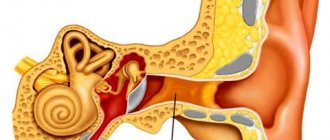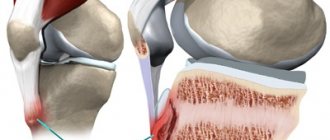Pulmonology is a field of medicine that deals with the study of the human respiratory system, diagnosis of diseases and ways of treating them.
Diseases of the respiratory system, namely the lower respiratory tract, are the specialization of a pulmonologist. Many patients who are faced with similar problems for the first time ask for advice from a pulmonologist, without even knowing in what cases to contact this particular doctor.
Pulmonologist: what does it treat?
Breathing is the most important process that ensures the saturation of the body with oxygen. Stopping breathing for just three minutes due to a spasm, a collapsed lung, or injury without emergency help can be fatal. No less harmful to the body are inflammatory and infectious processes that reduce the amount of oxygen supplied. Therefore, the appearance of breathing problems should be a reason to visit a doctor, and a good pulmonologist will help in this matter.
A pulmonologist in Moscow, at the Yusupova Hospital, identifies pathological processes that affect the lower respiratory tract and, taking into account the objective information received and the results of the examination, selects a treatment regimen depending on the characteristics of the patient’s body and the factors that provoked the disease. The latter include:
- allergies;
- hereditary pathology;
- smoking;
- colds;
- chest injuries;
- work in hazardous industries;
- infection – bacteria, viruses, parasites and fungi.
Expert opinion
Author:
Alexander Vyacheslavovich Averyanov
Doctor of Medical Sciences, Professor, Doctor of the Highest Qualification Category
Lung diseases are divided into obstructive and restrictive. The first type is characterized by difficulty in exhaling air (it takes longer to come out due to damage or narrowing of the airways). Also, improper exhalation can occur with increased physical activity. With restrictive disease, the patient cannot fill the lungs completely because they do not open completely. The reasons for this include muscle weakness, nerve damage, and lung stiffness.
Respiratory diseases significantly reduce a person’s quality of life. In severe situations, when treatment was not promptly provided, death is likely. At the Yusupov Hospital, diseases are detected at an early stage, which makes it possible to prescribe effective and gentle treatment. Therapy is carried out comprehensively and may include not only medications and inhalations, but also other techniques to improve the patient’s condition. Massage, physiotherapy and ozone therapy provide favorable conditions for further treatment.
Paid appointment with a pediatric pulmonologist
Many problems with pulmonary diseases come to adult clinics from childhood. In addition, when observing adult family members, one often encounters respiratory problems in young patients. The most common reasons for visiting our center are: prolonged cough, wet and dry cough, acute and chronic bronchitis, conditions after pneumonia, as well as suspected bronchial asthma. Particular attention is paid to children with a long-term cough; in young patients there are much more reasons for a long-term cough than in adults.
Pediatric pulmonologists provide comprehensive care to children with pulmonary diseases and related conditions, including:
- Bronchopulmonary dysplasia (BPD)
- Chronic (long-term) cough
- Ciliary dyskinesia
- Cystic fibrosis
- Pneumonia
- Pulmonary hemosiderosis
- Pulmonary infections – acute and chronic bacterial bronchitis
An outpatient appointment with a pulmonologist is not accompanied by painful tests and unpleasant manipulations for children.
These are mainly auscultation, spirometry and a test to determine the level of nitrogen in exhaled air. Therefore, the reception is carried out calmly and without tears.
During the appointment, the doctor asks the parents about their complaints and when they started. Reviews in detail extracts from outpatient records and previous studies, including CT or radiographs of the child. The duration of the consultation is at least one hour.
If your child has a cough, wheezing in the chest, coughing during games or sports, night cough, difficulty breathing and other respiratory symptoms, contact our specialists immediately.
How does the respiratory system work?
The human respiratory system consists of several sections:
- respiratory tract (upper - nose, pharynx and lower - larynx, trachea, bronchi);
- lungs (right and left);
- pleura (visceral membrane lining the chest cavity inside and the surface of the lungs outside);
- muscles that are involved in the breathing process;
- respiratory center in the medulla oblongata, responsible for timely inhalation and exhalation.
Any doctor of this specialization, both the chief pulmonologist in Russia and, for example, a paid pulmonologist in Lyublino, sets himself the same tasks: he examines and treats diseases of the respiratory tract, pleura and lungs, taking into account the close relationship of all parts of the respiratory system.
However, a pulmonologist does not treat all pathologies. In some cases, the involvement of other specialized specialists is required:
- thoracic surgeon – to perform surgical interventions on the chest organs;
- resuscitator - to relieve threatening conditions associated with acute respiratory failure;
- phthisiatrician – for the treatment of pulmonary tuberculosis in a specialized clinic.
Calling a pulmonologist to your home
If necessary, we will arrange for a doctor to visit your home or work in Moscow and the Moscow region. Using a mobile medical kit, a doctor will be able to diagnose and treat.
The consultation at home is conducted by Viktor Aleksandrovich Samoilenko, pulmonologist, candidate of medical sciences, nominee of the National Award for the best doctors of Russia “Calling”, student of Academician of the Russian Academy of Sciences, Professor A.G. Chuchalin.
|
What does a pulmonologist do?
Poor ecology, an increase in the number of allergy patients, decreased immunity and other negative factors lead to an increase in the number of patients suffering from respiratory pathologies, which is why every hospital has a pulmonologist.
Consultation with a pulmonologist in Moscow is necessary for people with bronchial asthma, pneumonia, bronchitis, as well as other, often more complex and dangerous diseases, the development of which is associated with age-related changes, poor lifestyle, and hazardous factors at work.
A pulmonologist provides medical care for the following diseases:
- pleurisy;
- pulmonary embolism;
- chronic and obstructive bronchitis;
- benign tumor (hamartoma);
- idiopathic pulmonary hemosiderosis;
- alveolitis;
- hemothorax;
- pneumothorax;
- pulmonary infarction;
- pulmonary hypertension;
- allergic diseases - treated by a pulmonologist, allergist;
- pulmonary fibrosis;
- emphysema;
- empyema;
- sarcoidosis;
- purulent destruction of the lung (abscess);
- apnea;
- chronic obstructive pulmonary disease;
- sarcoidosis, cystic fibrosis, other fibrosis.
In addition, there are a number of diseases that a pulmonologist does not treat, but can diagnose. An appointment with a pulmonologist is needed if you suspect the presence of the following diseases:
- tuberculosis - treated by a TB doctor;
- diseases of the upper respiratory tract - treated by an otolaryngologist;
- lung cancer - treated by an oncologist-pulmonologist (Moscow).
The scope of work of a pulmonologist
Doctors of this specialization are engaged in the examination, diagnosis and treatment of diseases of the lower respiratory structures. The identification of such a narrow specialization occurred historically, due to the huge number of ailments of these organs.
Several groups of diseases can be distinguished according to the genesis of their appearance:
- infectious – bronchitis, pneumonia;
- hereditary – cystic fibrosis;
- allergic – bronchial asthma;
- professional – asbestosis, anthracosis;
- traumatic – pneumothorax;
- illnesses of unknown origin - sarcoidosis, fibrosing alveolitis.
The specialist additionally monitors and monitors the dynamics of patients with chronic obstruction, emphysema and pneumosclerosis. Often it is the pulmonologist who diagnoses tuberculosis and lung cancer.
In what cases is an appointment with a pulmonologist necessary?
Your attending physician recommends making an appointment with a pulmonologist in Moscow or any other city in Russia. Consultation with a pulmonologist in Moscow is necessary if the following symptoms are present:
- persistent non-productive cough, in which symptoms of respiratory failure are present;
- prolonged cough, accompanied by sputum or without it;
- changes in the nature of sputum: pus, blood, drops of blood when coughing, pink foam are found in it;
- acute pain in the chest area, with its intensification during breathing and increasing respiratory failure;
- elevated body temperature, accompanied by cough, shortness of breath, weakness, wet sweat and other signs of intoxication;
- choking, increased cough in the evening or at night;
- spasms, difficulty breathing, which are caused by certain strong odors, dust pollution, changes in air temperature;
- constant irritation of the upper respiratory tract, prolonged profuse runny nose with clear discharge, laryngospasms.
Reviews from our patients
IntegraMed is an example of a high-quality approach to human health. Professional care, qualified assistance, attention and warmth are the best medicines of the company’s doctors. My family and I trust our health to IntegraMed specialists.
Maria Sittel
Presenter of the news program “Vesti”
“When it seemed impossible to save a life, the Lord sent Dr. Andrei Kuleshov to help my family. He and his team of doctors fought until the end. They succeeded in something that was beyond the control of many eminent medical professionals in Moscow and the Far East. The child is alive! My gratitude to Andrey Kuleshov and his colleagues is limitless.”
Peregudov Valery Vladimirovich
Captain 1st rank, deputy commander of the Red Banner 16th submarine squadron of the Pacific Fleet
“From our experience, we are convinced that we have the best doctors, the best diagnostic capabilities and clinical care at the highest world standards. Health is priceless - trust it to the best!”
Vladislav Borodinov and Irina Garus
European Champions, Finalists of the World Professional Ballroom Dancing Championships
“I would like to note the rare combination of medical and managerial professionalism, which always leaves the impression of excellent service.”
Dmitry Anatolyevich Gulin
President of the Association of Russian Automobile Dealers, Member of the Group Board
“I am happy to recommend it to my family and friends! Here I received high-quality care from real professional doctors, faithful to the Hippocratic Oath.”
Larisa Gennadievna Zelkova
Deputy General Director
“Professionalism is an exceptional feature of Dr. Andrei Kuleshov. Accuracy in identifying diseases, recommendations for prevention and maintaining the body in good shape are a small part of what I received by turning to Integramed specialists for help.
Igor Lvovich Lanskoy
How does a pulmonologist diagnose the disease?
The best pulmonologists in Moscow at the Yusupov Hospital Therapy Clinic use various modern diagnostic methods to identify diseases of the lower respiratory tract - from the analysis of biological fluid (sputum, blood) to identify markers of inflammation and bacteria to visual hardware studies.
Visual hardware studies include:
- Radiation diagnostic methods - radiography and fluoroscopy. X-ray provides a static picture (“photograph”) of the lungs, while fluoroscopy allows you to get a broadcast of the organ on a monitor in real time;
- bronchoscopy – endoscopic visualization used to view the bronchial mucosa from the inside, collect biomaterial for histological examination, and administer a drug;
- computed tomography - to obtain a layer-by-layer image of the tissues of the chest organs. In addition, it allows you to identify neoplasms: abscesses, fibrous cysts, cavities, foci of purulent fusion of necrosis;
- functional diagnostics: peak flowmetry (expiratory speed is assessed), spirometry (breathing volume and speed is assessed), spirography, etc.
Among the laboratory tests in the diagnosis of diseases of the respiratory system, the following can be distinguished:
- bacterial culture of sputum - to isolate pathogenic microflora, determine the causative agent of the disease, which will allow you to select the most effective bacterial preparations;
- clinical blood test - to determine the presence of an inflammatory process (with an increase in ESR), the acute or chronic phase of the process (leukocyte formula), an allergic reaction (with an increased level of eosinophils), general weakness of the body (with a reduced level of red blood cells and hemoglobin);
- allergy tests - to establish the spectrum of allergens that provoke deterioration of the condition;
- genetic diagnostics - to identify mutations characteristic of cystic fibrosis.
Diagnostic approaches
Pulmonology is one of those branches in which an objective examination by a doctor is the key to making a diagnosis. The completeness of this procedure depends on qualifications. First of all, a detailed survey of the patient is carried out, complaints are collected and detailed. An objective examination using auscultation, percussion and palpation should be performed.
Often, to clarify the diagnosis in severe, advanced cases, a number of additional tests are required. There are several main areas here:
- skin testing;
- general blood analysis;
- blood serum testing for the presence of specific immunoglobulins;
- carrying out provocative tests - applicable within the framework of remission of the disease.
Very often the clinical picture of the disease is quite confusing. Therefore, to clarify the diagnosis, an instrumental examination of the patient is required. For this, it is often used:
- echocardiography;
- CT scan;
- radiography of the OGK;
- determination of external respiration (spirography);
- bronchoscopy.
An organism is an integral structure, all its elements are interconnected. Therefore, it is impossible to evaluate each organ structure separately. That is why, when examining and making a final diagnosis, consultation with related specialists is often required. We are talking about a cardiologist, oncologist, endocrinologist, neurologist, allergist, infectious disease specialist.
Treatment of lower respiratory tract diseases
After a second appointment, the best pulmonologists in Moscow - specialists from the Yusupov Hospital, taking into account the results of the examination, select the optimal treatment methods: radical (surgical) or conservative (medicinal), recommend the patient to follow a certain regimen and diet, and also, if necessary, refer him for further examination to doctors of other specializations. If a tumor was detected, go to an oncologist; if tuberculosis is suspected, go to a phthisiatrician.
Drug therapy can be varied and, depending on the examination results and clinical symptoms, consists of several parts:
- antibacterial therapy (for bronchitis and pneumonia of bacterial origin);
- anti-inflammatory therapy - the patient is prescribed non-steroidal anti-inflammatory drugs and steroids (for severe edema);
- therapy using antitussive drugs to suppress the cough reflex or expectorants to increase bronchial secretion;
- therapy using drugs to eliminate bronchospasms and dilation of the bronchi - adrenomimetics, anticholinergics, antispasmodics;
- endoscopic administration of antiseptic drugs or their administration through pleural puncture (for pleurisy and pneumothorax).
The methods of hardware and instrumental treatment used in the Yusupov Hospital include:
- electrophoresis using various medicinal solutions;
- bronchoscopy, during which antiseptics are administered;
- warming up;
- pleural puncture (the procedure is performed by a thoracic surgeon), during which fluid or pus is pumped out, the cavity is washed with an antiseptic solution, and antibacterial drugs are administered.
Pulmonologists at the Yusupov Hospital make any appointments after carefully studying each case of the disease. Many procedures can be performed on a hospital basis, using the clinic’s latest medical equipment, but in some cases patients require long-term hospitalization. The decision about the need for hospitalization is made by a pulmonologist. You can make an appointment in Moscow by contacting the coordinators on the Yusupov Hospital website.
Rehabilitation of pulmonary diseases
In our .
| Therapeutic rehabilitation improves lymphatic drainage, blood supply to the bronchi and lung tissue. The consequence of this is improved bronchial protection and improved respiratory system health. The course of treatment affects the viscosity and amount of sputum, helps cleanse the bronchi. A system of special exercises will allow you to replace the function of lost eyelashes and cough up mucus well. The entire complex of therapy takes place under the supervision of a doctor. Therefore, during the sessions, you can focus on the characteristics of the disease and well-being, reduce or increase the load, change or add inhalation drugs. |
1
Vibration vest Ventum Vest
Improving the drainage function of the lungs, their blood supply and ventilation due to vibration massage of the bronchi. Impact on the respiratory muscles.
2
Flutter PARI O-PEP
Flutter exercises PARI O-PEP (Germany) effectively mobilizes and removes bronchial mucus and helps clear the airways.
3
Nebulizer PARI
Administration of expectorants and anti-inflammatory drugs through a professional PARI nebulizer (Germany).
4
Threshold trainer
Exercises on special Threshold simulators (Philips, USA) enhance expectoration and increase endurance.
People come to us for treatment from all over Russia and neighboring countries. More than 80% of patients come on recommendation.
Prevention of lower respiratory tract diseases
An appointment with a pulmonologist in Moscow can also be of a preventive nature. Regular visits to a pulmonologist are required for chronically ill patients to assess the current condition of their body, prolong the remission period and mitigate the symptoms of possible future exacerbations.
In order to exclude bronchopulmonary diseases, the following recommendations must be followed:
- stop smoking;
- prevent infectious diseases (through vaccination, personal hygiene);
- eliminate potential allergens;
- do not overcool;
- eliminate damaging factors (concerns the use of personal protective equipment and compliance with safety precautions when in contact with toxic substances and dust);
- adhere to a nutritious diet;
- train the respiratory system (do breathing exercises, play wind instruments, sing);
- carry out hardening procedures and adhere to an active lifestyle.
If you need a consultation with pulmonologists in Moscow, contact the Yusupov Hospital at a time convenient for you. The therapy clinic offers all hardware tests and therapeutic manipulations, and has its own bacteriological and clinical laboratories. The patient can spend the entire course of treatment in the clinic’s inpatient unit, equipped with comfortable wards. Each patient is provided with balanced nutrition and round-the-clock assistance from medical staff.
Preventive consultations
The pulmonologist also provides preventive consultations for chronic patients. The doctor examines the current condition, helps to prolong the period of remission and smooth out symptoms, and prescribes therapy during exacerbations.
The doctor advises patients to stop smoking, not to provoke the condition by the presence of allergens, to monitor their diet, and to exercise their respiratory organs. It is important to protect the patient from infections by explaining the rules of personal hygiene and vaccination. Procedures that strengthen the body and an active lifestyle are advisable.
When to see a doctor
Respiratory health depends on many factors. Unfavorable ecology, past illnesses and injuries, smoking, allergic reactions, infections and viruses can provoke acute inflammation of the respiratory tract, which, if not treated correctly, can become chronic.
Consultation with a pulmonologist is needed if:
- you have a dry, nonproductive cough or cough with sputum for more than 3 weeks;
- you cough only in the morning or only at night or in a certain position (sitting, lying on your side);
- in the morning you are worried about a disturbance in your respiratory rhythm, it is difficult for you to breathe, your breathing is accompanied by coughing up phlegm;
- you have frequent shortness of breath after light exertion (climbing to the floor, walking);
- there is a feeling of tightness in the chest, pain when coughing, deep entry;
- you have a long-term low-grade fever (a constant increase in body temperature from 37.1 to 38.0 degrees) after an acute respiratory infection or flu.
Often, lung pathologies develop without pronounced symptoms or these symptoms are ignored by the patient. The so-called “residual cough,” which, according to many, should “go away on its own,” morning cough with sputum, unexplained weakness with constant difficulty breathing, as well as frequent bronchitis and allergic reactions require treatment.
A pulmonologist will make a diagnosis and select treatment that will help stop the development of the pathology, relieve painful symptoms, achieve recovery or (in the case of asthma) long-term remission of the disease.
Treatment methods
Rule-based treatment presupposes an individualized approach and comprehensiveness of treatment. Primary prevention measures have been developed, carried out in the pre-disease phase, acute phase and during remission. Systematic implementation of pathogenetic, restorative treatment of bronchopulmonary patients, supplemented by physiotherapy and diet therapy, gives results.
Complex treatment of respiratory diseases involves not only the prescription of pharmacological drugs (etiotropic, pathogenetic, symptomatic), but also the inclusion of other methods of influence.
Prescription of physiotherapeutic procedures, diet, daily routine, restorative and training methods of therapy.
Pulmonary patients are characterized by allergic reactions to medications and individual intolerance to components.
Conservative and surgical methods are used for treatment. Surgical intervention involving opening the chest is dangerous for the patient and is rarely used.
Endoscopic surgery, in which manipulations are performed through a small puncture (thoracoscopy), significantly reduces postoperative complications. And now this modern method of surgery is used.
Doctors at foreign clinics diagnose any type of pulmonary disease within 3 days and successfully cure it in a short time, using medications and the latest equipment.
Effectively treat tuberculosis. For bronchial asthma, asthma attacks are relieved using blockers.
In the fight against oncopulmonology, innovative developments and technologies are used: laser, video thoracoscopic operations and others.
The video below contains a detailed conversation with a pulmonologist at Radio Beacon:
to contents ^
Pulmonology Center Integramed
Our clinic has been successfully helping patients cope with respiratory diseases for more than 10 years. Treatment of pulmonary diseases is our main focus.
|











